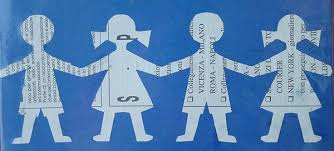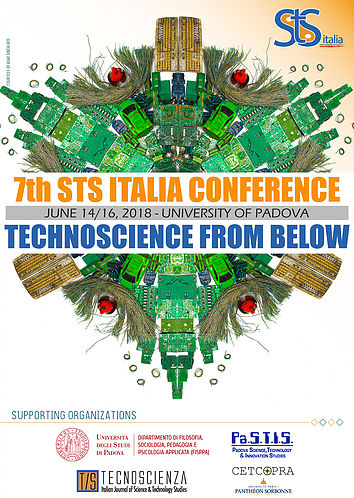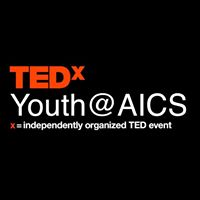by Cecilia Maundu
I remember it was September 2015 when I was invited for a two-day workshop on digital safety by the Association of Media Women in Kenya. At first I was very curious because I had not heard much about digital security. The two-day workshop was an eye opener. After the workshop I found myself hungry for more information on this issue.
Naturally, I went online to find more information. I must say I was shocked at the statistics I came across on the number of women who have been abused online, and continue to suffer. Women were being subjected to sexist attacks. They were attacked because of their identity as women, not because of their opinions. I asked myself what can I do? I am well aware that I am just a drop in the ocean, but any little change I can bring will help in some way. That was a light bulb moment for me.
It was in that moment that I knew I wanted to be a digital safety trainer. I wanted to learn how to train people, especially women, on how to stay safe online. The internet is the vehicle of the future. This future is now, and we cannot afford for women to be left behind.
Online violence eventually pushes victims to stay offline. It is censorship hidden behind the veil of freedom of expression.
After this realization, I embarked on the quest to become a digital safety trainer. As fate would have it, my mentor Grace Githaiga came across the SafeSister fellowship opportunity and sent it to me. I applied and got into the program. The training was taking place in Ngaruga lodge, Uganda. The venue of the training was beyond serene. The calm lake waters next to the hotel signified how we want the internet to be for women: a calm place and a safe space where women can express themselves freely without fear of being victimized, or their voices being invalidated.
On arrival we were met by one of the facilitators, Helen, who gave us a warm welcome. The training was conducted by five facilitators, all of whom were women.
The training was student friendly. The topics were broken down in a way that allows everyone to understand what was being discussed. Each facilitator had her own way and style of delivering the different topics, from using charts to power point presentations. I must say they did an exceptional job. I got to learn more about online gender violence and how deeply rooted it is in our society, and hence the importance of digital security trainings.
Being a trainer is not only about having digital safety skills, it also requires you to be an all rounded person. While giving training you are bound to meet different types of people with different personalities, and it is your duty to make them feel comfortable and make sure the environment around them is safe. It is in this safe space that they will be able to talk and express their fears and desires, and, most importantly, they will be willing to learn. As a digital security trainer, you should first know more about your participants and how much they know about digital security. This will enable you to package your material according to their learning needs.
Being a trainer requires you to read a lot on digital security, because this keeps you updated and allows you, therefore, to relay accurate information to your trainees. As a trainer, it is also necessary to understand the concept of hands on training because it gives the participants the opportunity to put into practice what they have learnt. For example, when you are teaching about privacy status on Facebook, you don’t just talk about it, your should rather ask the participants to open their Facebook accounts – that is if they have any – and go through the instructions step by step with them till they are able to achieve the task. As a trainer there is also the possibility of meeting a participant who does not give the opportunity to the rest of the group to express their views, as they want to be the one to talk throughout. However, the trainer needs to take charge and make sure that each participant is given an equal opportunity to talk.
Before the training we had each been given a topic to make a presentation on, and mine was to do with encryption; VeraCrypt to be more specific. At first it sounded Greek to me, but then I resorted to my friend Google to get more details (this begs the question of: how was life before the internet?). By the time I was leaving Kenya for Uganda I had mastered VeraCrypt. We kept discussing our topics with the rest of the group to a point where they started calling me Vera. My presentation went so well to my surprise. The week went by so fast. By the time we realized it, it was over and it was time to go back home and start implementing what we had learnt.
We continued receiving very informative material online from the trainers. In September 2017 they opened up a pool of funding where we could apply to fund a training in our different home countries. I got the funding, and chose to hold the training at Multimedia University where I lecture part time. The reason behind my choice was that this was home for upcoming young media women, and we needed to train them on how to stay safe online, especially since media women in Kenya form the majority of victims of gender based violence. They needed to know what awaits them out there and the mechanisms they needed to have to protect themselves from the attacks. The training was a success, and the young ladies walked away happy and strong.
The second, and last, part of SafeSister (I am barely holding my tears here, because the end did come) took place in Uganda at the end of March 2018. It was such a nice reunion, meeting the other participants and our trainers after a year. This time the training was more relaxed. We were each given a chance to talk about the trainings we conducted, the challenges we encountered, the lessons learnt and what we would have done differently. For me the challenge I encountered was time management. The trainers had prepared quite informative materials, hence the time ran over, add to it a 3o minutes delayed start.
This was my first training, and one take home for me as a digital safety trainer was that not all participants will be enthusiastic about the training, but one shouldn’t be discouraged or feel like they are not doing enough. The trainer just needs to make sure that no participant is left out. The trainer should not just throw questions at the participants, or just ask for their opinion on different issues regarding digital safety. As time progresses, they gradually get enthusiastic and start feeling more at ease.
One thing I have learnt since I became a digital security trainer is that people are quite ignorant on digital security matters. People go to cybercafés and forget to sign out of their email accounts, or use the same password for more than a single account, and then they ask you ‘’why would someone want to hack into my account or abuse me and I am not famous?” However, such questions should not discourage you, on the contrary, they should motivate you to give more trainings, because people don’t know how vulnerable they are by being online while their accounts and data are not protected. Also as a trainer, when you can, and when the need arises, give as much free trainings as you can, since not everyone can afford to pay you. It is through these trainings that you continue to sharpen your skills and become an excellent trainer.
After the training we were each awarded a certificate. It felt so good to know that I am now a certified digital security trainer; nothing can beat that feeling. As they say, all good things must come to an end. Long live Internews, long live DefendDefenders Asante Sana. I will forever be grateful.
Cecilia Mwende Maundu is a broadcast journalist in Kenya, a digital security trainer and consultant with a focus on teaching women how to stay safe online. She is also a user experience (UX) trainer, collecting user information feedback and sharing it with developers.








